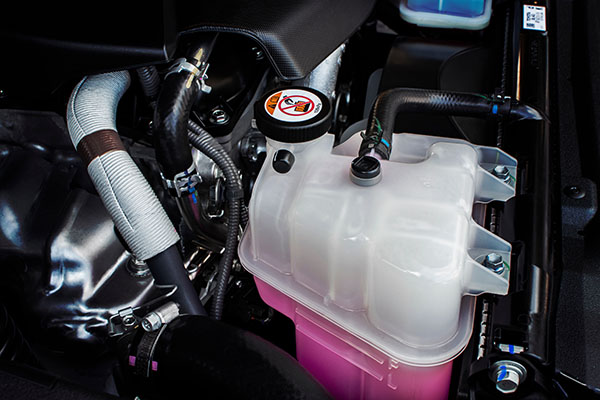
Imagine your car as a living being, with its engine as the heart pumping life into its mechanical veins. Just as the human body relies on a well-functioning circulatory system, your vehicle depends on its cooling system to maintain optimal temperature and prevent overheating. Understanding the critical role of this system and implementing proper maintenance practices is crucial for ensuring the longevity and performance of your trusted automobile.
How Does The Cooling System Work?
The cooling system in a car operates in a similar way to the human body's temperature regulation system, and it does so with great efficiency. The system circulates a specialized coolant fluid throughout the engine, effectively absorbing the excess heat generated during combustion. The heated coolant then travels to the radiator, passing through a series of thin tubes, allowing heat to dissipate into the air. As the now-cooled coolant returns to the engine, it expertly regulates the engine's temperature, preventing any potential overheating and ensuring an incredibly smooth and efficient operation.
This continuous cycle of heat absorption and dissipation allows the car's engine to run at an optimal temperature, protecting it from potential damage and ensuring a dependable and long-lasting performance on the road.
The Cooling System Components
Radiator
Consider the radiator as the cooling hub of your vehicle, where coolant circulates to dissipate heat and regulate the engine's temperature.
Water Pump
Visualize the water pump as the heart of the cooling system, responsible for circulating coolant through the engine and radiator, ensuring consistent temperature control.
Thermostat
Think of the thermostat as the gatekeeper, regulating the flow of coolant to maintain the optimal operating temperature for the engine.
Cooling Fan
Picture the cooling fan as the system's cooling assistant, aiding in heat dissipation during slow or stationary vehicle operation, preventing the engine from overheating.
Hoses and Belts
Envision hoses and belts as the vital connectors that ensure the seamless flow of coolant and power transmission within the cooling system, enabling its efficient operation.
Maintaining the Cooling System
- Regular Coolant Checks: Regularly inspect the coolant levels and quality to ensure they are within the recommended range and free from contaminants that can hinder the cooling system's effectiveness.
- Timely Radiator Flushing: Schedule regular radiator flushing to remove any accumulated debris or sediment that may impede the coolant flow and compromise the cooling efficiency of the system.
- Inspection of Hoses and Belts: Periodically examine the hoses and belts for any signs of wear, leaks, or cracks, and replace them if necessary to prevent coolant leakage and ensure uninterrupted operation of the cooling system.
- Monitor the Water Pump: Keep a close eye on the water pump for any signs of leaks, unusual noises, or reduced performance, as these can indicate potential issues that may require immediate attention or replacement.
- Check the Cooling Fan: Test the cooling fan regularly to ensure it operates smoothly and activates as needed to prevent overheating. Address any issues with the fan promptly to avoid engine damage due to inadequate heat dissipation.
When in need of cooling system services, contact us at Auto Masters Repair, and we will be glad to help! We have a vast array of services that you can also take advantage of, so don't miss out!